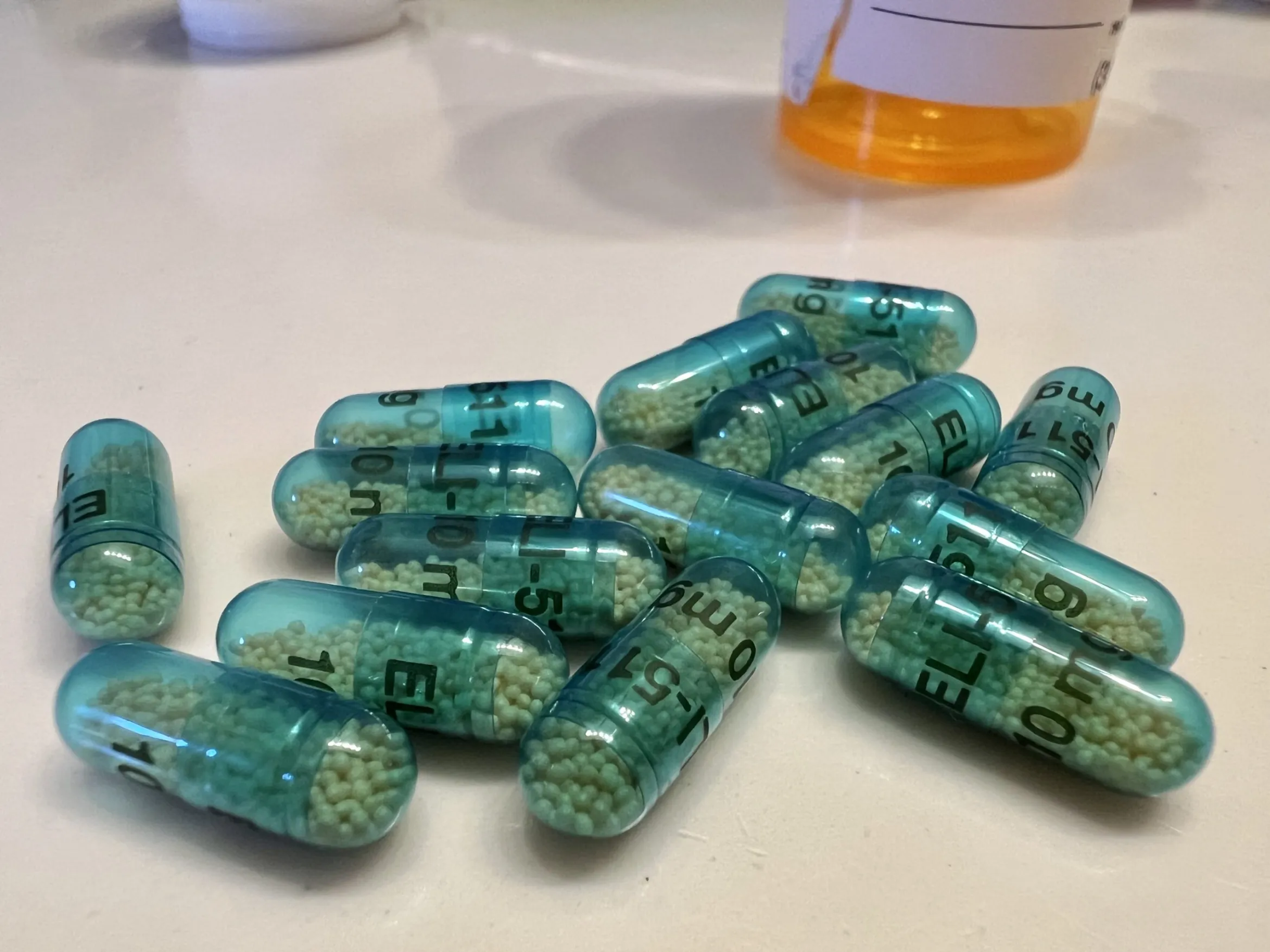
• Brand name Adderall and similar medications continue to be in short supply following a long, complicated string of challenges. That’s made life harder for many who rely on the pills.
By Madelyn Beck, WyoFile.com
For a long time, Nicole Foss wouldn’t even get behind the wheel of a car without taking her medications.
“It seemed like too high of a risk,” she said.
Foss is one of millions in the U.S. who’ve been diagnosed with attention-deficit/hyperactivity disorder. Without medication, it affects her ability to make “reasonable, logical” decisions, she said. She’s also among those affected by a national shortage in ADHD medications — a challenge that may last for years.
That shortage includes Adderall, Concerta, Ritalin and other medications.
“This is the highest logistical burden on the people who can handle it the least,” Foss said.
Foss, a 24-year-old Laramie resident, has been taking ADHD medications since third grade. Due to federal regulations, though, people like her still have to go back to the pharmacy every month for a 30-day supply.
“I understand why [the regulations] are in place, there is a high rate of abuse,” she said. “On the other hand, it makes it so hard — so hard for people to get the help that they need.”
Foss knew medication shortages were coming because both of her parents work in pharmacology. As the flow of medications dwindled, Foss said she had to go a few weeks without her regular medication Concerta, using caffeine to help her get through it.
“I had headaches and stuff like that,” Foss said. “The withdrawal symptoms, they’re not the worst. You can kind of counteract them with caffeine, which is what I did.”
She had applied for Americans with Disabilities Act accommodations, but that took time and energy, too.
Later, Foss lost her job, jeopardizing her health insurance. She couldn’t afford the medications without the coverage.
Being 24, she was able to join her parents’ health insurance — but their insurer doesn’t operate in Wyoming, meaning Foss has to drive to Fort Collins, Colorado, for any covered medications. It’s a trip she now makes regularly, hoping that the pharmacy in her doctor’s office has medications that will work for her. For now, she takes several Metadate pills every day, hoping her old medications become available again soon.
“It’s just exhausting,” she said.
For the last 18 to 24 months, many people around the state and country have been affected by these shortages — exactly how many is unclear. Still more could be affected in the near future, though, as new shortages are anticipated and affordable, generic medications could become harder to find.
Behind the counter
Foss isn’t alone in her frustration.
Recently, one patient at Hospital Pharmacy West in Sheridan “just exploded” after workers weren’t able to provide that person’s medication, according to owner and Wyoming Pharmacy Association President Matthew Meyer. That patient had already had to transfer all their information to Meyer’s pharmacy, and now they couldn’t fill the prescription.
“Originally, we were able to supply [their medication] for another three months, and now we can’t obtain it and they had to go look somewhere else for it,” Meyer said. “Your pharmacies…we’re doing everything that we can. We’re looking at every available source that we can possibly utilize to try to get these medications in for our patients because shortage has hurt us as well.”
For some, these medications are not only necessary to complete work and other tasks. There can also be withdrawal symptoms for those using higher dosages, including fatigue, sleep problems and depression.
People with ADHD like Foss need these medications not to be highly efficient “super-heroes,” but to bring “us up to the point where we can function like most people function,” she explained.
Meyer had heard supply restrictions could ease up by late June or early July this year, but now weeks later, challenges remain.
“We are definitely a long ways away from being able to say that the supply chain is returned to normal, corrected or is even truly close to being completely corrected,” he said. “But [there has been] a step in the right direction.”
How did we get here?
The shortage is almost as complex as the series of companies, regulations and hands these medications pass through.
The Food and Drug Administration stated last October that the shortages were caused in part by manufacturing delays and insufficient supplies. Currently, the FDA is reporting shortages for Adderall and similar “amphetamine mixed salts” because of continued ingredient shortages and historic demand.
The increased demand, itself, is complicated. Broadening diagnostic criteria and an overall increase in awareness are likely contributing factors, especially for women and people of color, according to research published last year. TikTok, alone, may be driving some of that interest.
Regardless, the supply can’t keep up. Beyond ingredient shortages, the ending of federal pandemic emergency measures has led to more inspections of overseas plants — including those that have let things slip in the intervening years.
“Since that started over the last year, we have seen several plants have to shut down for a variety of reasons: sanitary, quality control,” Meyer said.
To pass inspections again and restart shipping can take upwards of half a year, he said. Just getting the drugs to pharmacies in Wyoming during the winter can be an issue because of frequent road closures.
Even big-box store pharmacies can have issues, Meyer added, saying that their warehouses may ship medications less frequently to the pharmacies that don’t make as much money — e.g. those in rural Wyoming.
“In Sheridan in particular, our Walmart, our Walgreens tend to run out of product sooner than we do,” he said.
At the same time, some drug makers have stopped producing as much generic medication because it isn’t making them as much money, Meyer added. Certain generic drug manufacturers have even gone out of business.
Finally, there’s the complicated, head-spinning list of contractual agreements and requirements between drug makers, distributors, pharmacies, hospitals, middle-men and insurance companies.
“Unfortunately, it’s extremely complex,” he said.
The end result of those heaps of agreements is that it can be more difficult to effectively work through shortages or make sure pharmacies stay solvent and patients end up with the most affordable medications, Meyer said.
What to do?
To control the shortages, companies like Teva — a manufacturer of brand-name Adderall — states it “is manufacturing and distributing consistent with historic levels.” With growing demand and an increasing number of people moving into certain Wyoming towns, old production levels fall short.
“You can put in for appeals [to allocation amounts],” he said, but “during shortages, it’s pretty tough to win an appeal.”
In the meantime, Meyer said some have turned to an alternate and similar ADHD medication to Adderall called Vyvanse — but he says even that may not be a reliable fallback in the future.
“This is just hearsay at this point, but you know, we’re being told to prepare for a Vyvanse shortage,” he said.
For some who’ve relied on telehealth to access these controlled substances since the start of the pandemic, there are also proposed federal rules that would require more in-person visits, though their implementation has largely been delayed until November.
As of Wednesday, Meyer stated new projections show another 18 to 24 months of rough roads for those hoping to access the more affordable generic versions of certain ADHD medications.
Those experiencing a shortage of a needed medication have options, Meyer says. One is to check around to other pharmacies, which may contract with a company that has more access at the time.
Another is to check with pharmacies five to seven days before running out of a prescription so you have time to have your doctor send a script to another location or approve a change of medication if necessary.
Foss does this regularly.
“Call as early as you can,” she said. “Give yourself as much lead time as you can, and do that every month.”
Even beyond those, Foss said people need to start practicing their coping strategies in case their medication does run out. Exercise helps, she says, but it’s not always feasible to go for a vigorous run every few hours.
And both Foss and Meyer talked about the possibility of having to switch ADHD medications, even if it took years to find one that works best. Foss was lucky, she said, having parents who could talk her through her options.
“My mom would say, ‘these are the medications that are pharmacologically similar to the ones that you’re taking…You can switch to a different drug with a different mechanism, but you’re gonna want to ask about these first because they’re in the same drug family,” Foss said.
Foss looks forward to a day without medication uncertainty. However, even then, she suspects regulatory burdens, health care costs, busy doctor’s offices and the stresses of living with a chronic condition will remain.
“The shortage will eventually stop,” Foss said. “But the logistical nightmare of being somebody who needs ADHD meds, I think, will probably only get worse over time.”
WyoFile is an independent nonprofit news organization focused on Wyoming people, places and policy.





